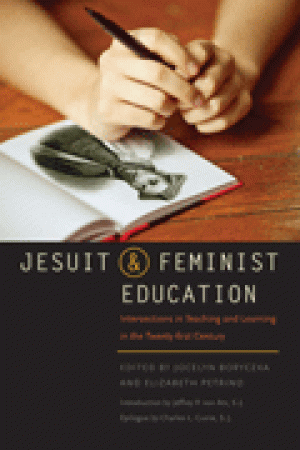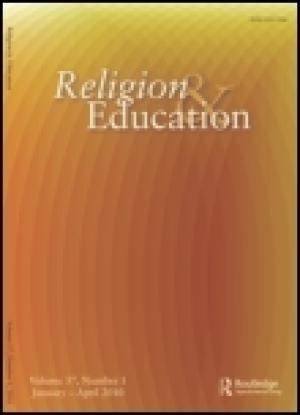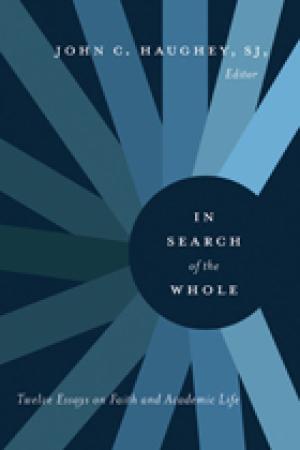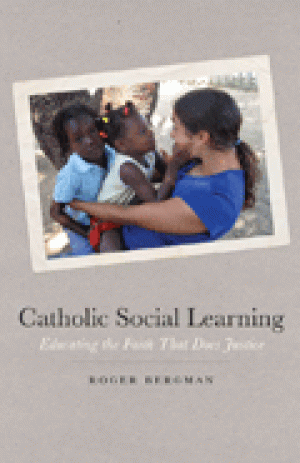Resources

This book explores how the principles and practices of Ignatian pedagogy overlap and intersect with contemporary feminist theory in order to gain deeper insight into the complexities of today's multicultural educational contexts. Drawing on a method of inquiry that locates individual and collective standpoints in relation to social, political, and economic structures, this volume highlights points of convergence and divergence between Ignatian and feminist pedagogies to explore how educators might find strikingly similar methods that advocate common goals—including engaging with issues such as race, gender, diversity, and social justice. The contributors to this volume initiate a dynamic dialogue that will enliven our campuses for years to come. (From the Publisher)

Journal Issue.

The contributors to this inspiring anthology meet the challenge that everyone faces: that of becoming a whole person in both their personal and professional lives. John C. Haughey, SJ, has gathered twelve professionals in higher education from a variety of disciplines—philosophy, theology, health care, business, and administration. What they have in common reflects the creative understanding of the meaning of "catholic" as Haughey has found it to operate in Catholic higher education. Each essay in the first six chapters describes how its author has assembled a unique whole from within his or her particular area of academic competence. The last six chapters are more autobiographical, with each author describing what has become central to his or her identity. All twelve are "anticipating an entirety" with each contributing a coherence that is as surprising as it is delightful. (From the Publisher)

The canon for Catholic social teaching spreads to six hundred pages, yet fewer than two pages are devoted to Catholic social learning or pedagogy. In this long-needed book, Roger Bergman begins to correct that gross imbalance. He asks: How do we educate ("lead out") the faith that does justice? How is commitment to social justice provoked and sustained over a lifetime? To address these questions, Bergman weaves what he has learned from thirty years as a faith-that-does-justice educator with the best of current scholarship and historical authorities. He reflects on personal experience; the experience of Church leaders, lay activists, and university students; and the few words the tradition itself has to say about a pedagogy for justice. Catholic Social Learning explores the foundations of this pedagogy, demonstrates its practical applications, and illuminates why and how it is fundamental to Catholic higher education. Part I identifies personal encounters with the poor and marginalized as key to stimulating a hunger and thirst for justice. Part II presents three applications of Catholic social learning: cross-cultural immersion as illustrated by Creighton University's Semestre Dominicano program; community-based service learning; and the teaching of moral exemplars such as Dorothy Day, Rev. Martin Luther King Jr., and Archbishop Oscar Romero. Part III then elucidates how a pedagogy for justice applies to the traditional liberal educational mission of the Catholic university, and how it can be put into action. Catholic Social Learning is both a valuable, practical resource for Christian educators and an important step forward in the development of a transformative pedagogy. Roger Bergman is the founding director of the Justice and Peace Studies Program at Creighton University, where he is also Associate Professor in the Department of Sociology and Anthropology. (From the Publisher)

The Schooled Heart addresses a basic question about the nature of the university: should moral education figure among the university's purposes? This volume offers an affirmative response to that question. A central purpose of the university is the moral formation of students—what Beaty and Henry call the schooling of the heart. (From the Publisher)
What is the relationship between the academic knowledge of the guild and the formation of students in the classroom? This Forum gathers four essays originally presented at a Special Topics Session at the 2009 conference of the American Academy of Religion (Atlanta, Georgia), with a brief introductory essay by Fred Glennon explaining the genesis of the panel. Douglas Jacobsen and Rhonda Hustedt Jacobsen clarify some of the issues at stake in undergraduate liberal arts classrooms by distinguishing between four dimensions of what they refer to as “the (in)formation teaching matrix: institutional context, course content, faculty roles, and student outcomes. John Thatamanil argues that all learning necessarily presupposes formation. Amanda Porterfield argues against using the word “formation” because it complicates and undermines her teaching goals to historicize religion and narratives about it through open-ended inquiry. And, finally, Mary Elizabeth Moore explores the interactive processes linking formation, information, reformation, and transformation.